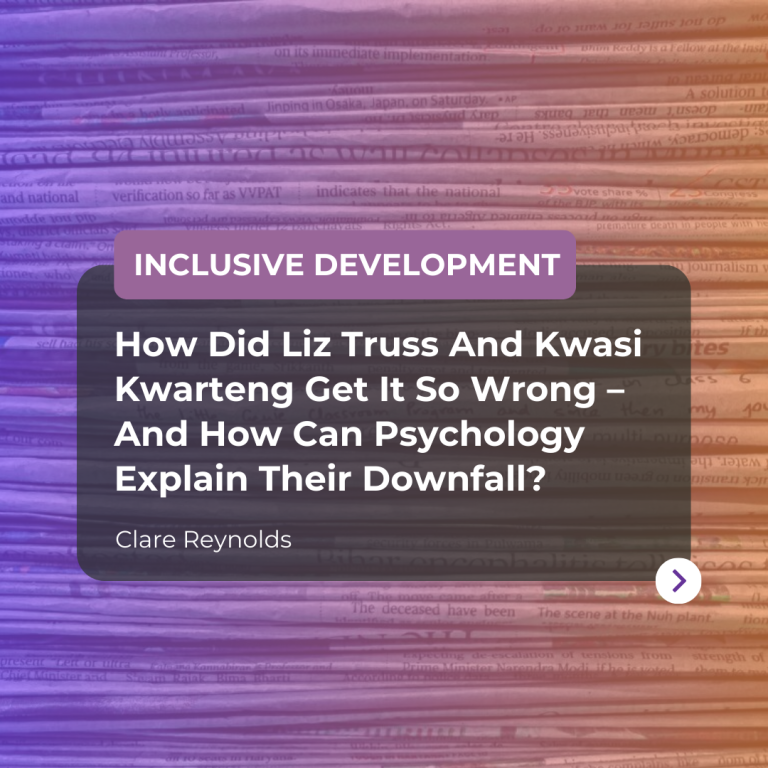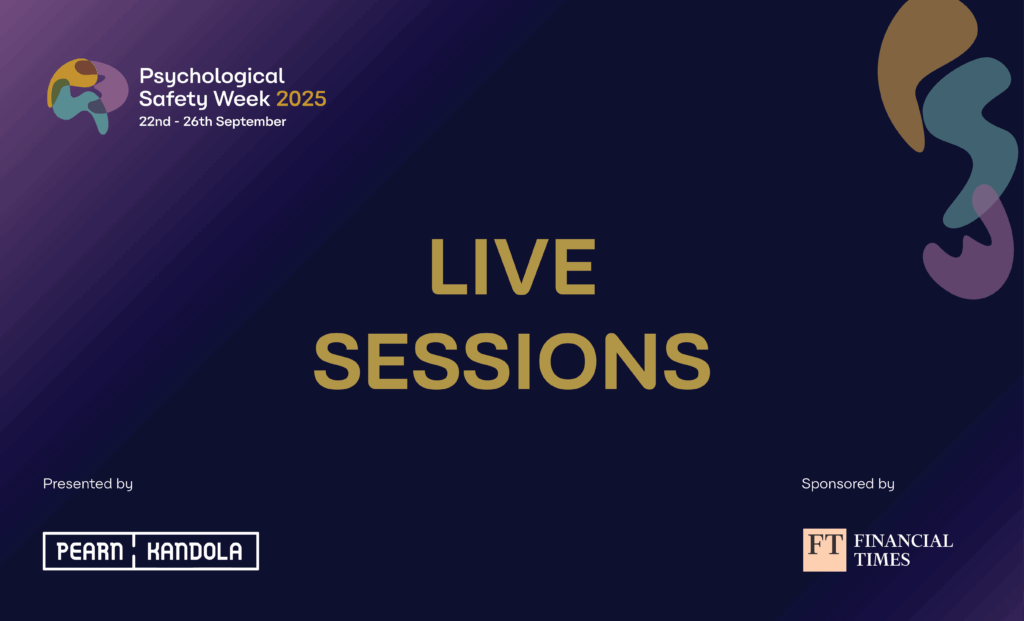Oxford-born, former Liberal-Democrat Liz Truss emerged as the bold new leader of the Conservative party. Her ideological partner stood beside her, market fundamentalist Kwasi Kwarteng. Both shared a strong background in finance and economic policy, which the public hoped would prime them well for the job ahead.
Together, they promised to resolve the ongoing energy crisis, deliver economic growth through tax cuts, and devise a plan to save the NHS. And yet just 44 days later, a storm caught up with them.
What exactly went wrong? How do two prestigiously educated, ambitious leaders create a political mess that would force them to leave behind policies of their own making? Was it their shared ideology, or leadership style? Or can we attribute their decision-making to the pressured climate in which they were working?
How individual difference shapes leadership style
To understand their failings as leaders, it’s crucial to examine who Truss and Kwarteng are as individuals first. Born into an incredibly left-wing family, Truss was, fascinatingly, the President of the Liberal Democrat Society at Oxford University. She shifted to Conservatism after identifying with those who shared “a commitment to personal freedom, and the ability to shape your own life and destiny”.
It could be argued that with the Tories having been in power for so long, she was simply following a seat at the political table, proving that even in her younger years, she was able to make quick, discerning judgements about what would best enable her success.
Similarly, there was an element of mimicry at play within her leadership style, as she began to talk and dress like Margaret Thatcher – the only woman who has succeeded in British politics. And although it has now come to light that Kwarteng advised Truss to slow down her drastic measures, when it served her best, she shifted the blame and fired him to hold onto her position. As ever, a woman who was unafraid of making bold choices to chase, and remain in power.
It has long been suggested that rigid Conservative self-identification is often reactionary against liberal politics, and if so, we are reminded of her identity as a true nonconformist, which she undoubtedly carried forward into her Prime Ministership. This is a trait Truss shared with Kwasi Kwarteng.
Born to Ghanaian immigrants, Kwarteng was a minority who succeeded in an elitist school, which we could argue ‘empowered’ him to be different, and to feel different – maybe even superior. When we consider these two beginnings side by side, a pattern emerges of a desire to rebel, stand out, and go against the grain.
A lesson in groupthink
Add to this mix the environment of ‘groupthink’, which is a feeling of invulnerability occurring when a group of like-minded thinkers reach a consensus without critical thinking, or evaluation of the consequences.
Under these conditions, thinking becomes even more single-minded, and it is no coincidence that amongst the key decision makers here we have the authors of ‘Britannia Unchained’, Liz Truss, Kwasi Kwarteng, Priti Patel, Dominic Raab, and Chris Skidmore. The book has been described as a ‘Hunger Games Manifesto’, laying out some of the most right-wing ideas seen in decades.
When we consider that this clique was thinking and operating under a shared fiscal ideology, we begin to understand that there’s an element of group membership at play here. They felt driven to be utterly dynamic, a group of change-makers duty bound to break tradition. Kwarteng in particular hoped to challenge finance ministry groupthink, and combat the orthodoxy, and he and Truss earnestly believed their new measures would excite investors and unleash economic growth.
And yet, the creation of the mini-budget revealed that Kwarteng’s ‘bold new plan’ to boost spending, and make millions for the economy, included a tax cut for those who earn over £150,000 – the highest earners in our country.
These policies revealed a complete disregard for the rest of society, which is unsurprising when we take into account the shared elitist, Oxford and Philosophy, Politics and Economics educated background of the core decision making group. The Labour party urged Truss and Kwarteng to reconsider, drawing attention to how many were making use of food banks during this time – and in the midst of this crisis the Conservatives wished to enhance the wealth of the few.
Failed cognitive decision-making
Undoubtedly, one of the failings of both Truss and Kwarteng was their cognitive decision-making. Their dogmatism led them to be low on openness to experience, with a stubborn refusal to listen to outside views.
The mini-budget was a financial statement published without the normal measures; usually it would come with an independent forecast from the Office of Budget and Responsibility, to allow for investors and journalists to check the numbers, and consider what is and isn’t possible. The Dunning-Kruger effect is a type of psychological bias that leads thinkers to overestimate their abilities compared to their counterparts, and we would do well to question whether this was at play for both Truss and Kwarteng.
After the massive crash in the pound’s value, Kwarteng again vowed to reveal his plan to balance the books and pay for his tax cuts. There was a complete lack of communication; he never hinted that he was having second thoughts, and simply steamrolled ahead, expecting both public and market favour to follow.
Arguably these were two leaders committing the sunk cost fallacy, in that they stubbornly continued down a path that was no longer serving them, refusing to cut their losses after investing time into their policies – and putting their reputations on the line.
It could also be said that both Truss and Kwarteng show signs of having a high external locus of control, in that they consistently blamed the environment around them, or each other, for the failure of their own decision making.
When Kwarteng finally revealed that he was doing a U-turn on his tax cut policy, he refused to explain himself, simply stating that there is ‘humility and contrition’ when asked if he owes the public an apology. Similarly, when Truss was challenged to take accountability by the BBC, she said that ‘We didn’t get it right, and I have fixed the problem’, notably taking ownership of any resolution, but not failure.
Rigid, inflexible leadership styles led Truss and Kwarteng to stay committed to policies that were failing them, and to refuse expert external guidance. The time-pressured environment that they were working in, combined with elements of groupthink and privilege that were at play, resulted in a chaotic timeline of continuously poor choices, as well as a notable lack of empathy for those who were not like them.
Ultimately, these were two individuals that were strong in self-belief and in their vision, but had a complete disconnect on the ‘people’ side of their thinking.







